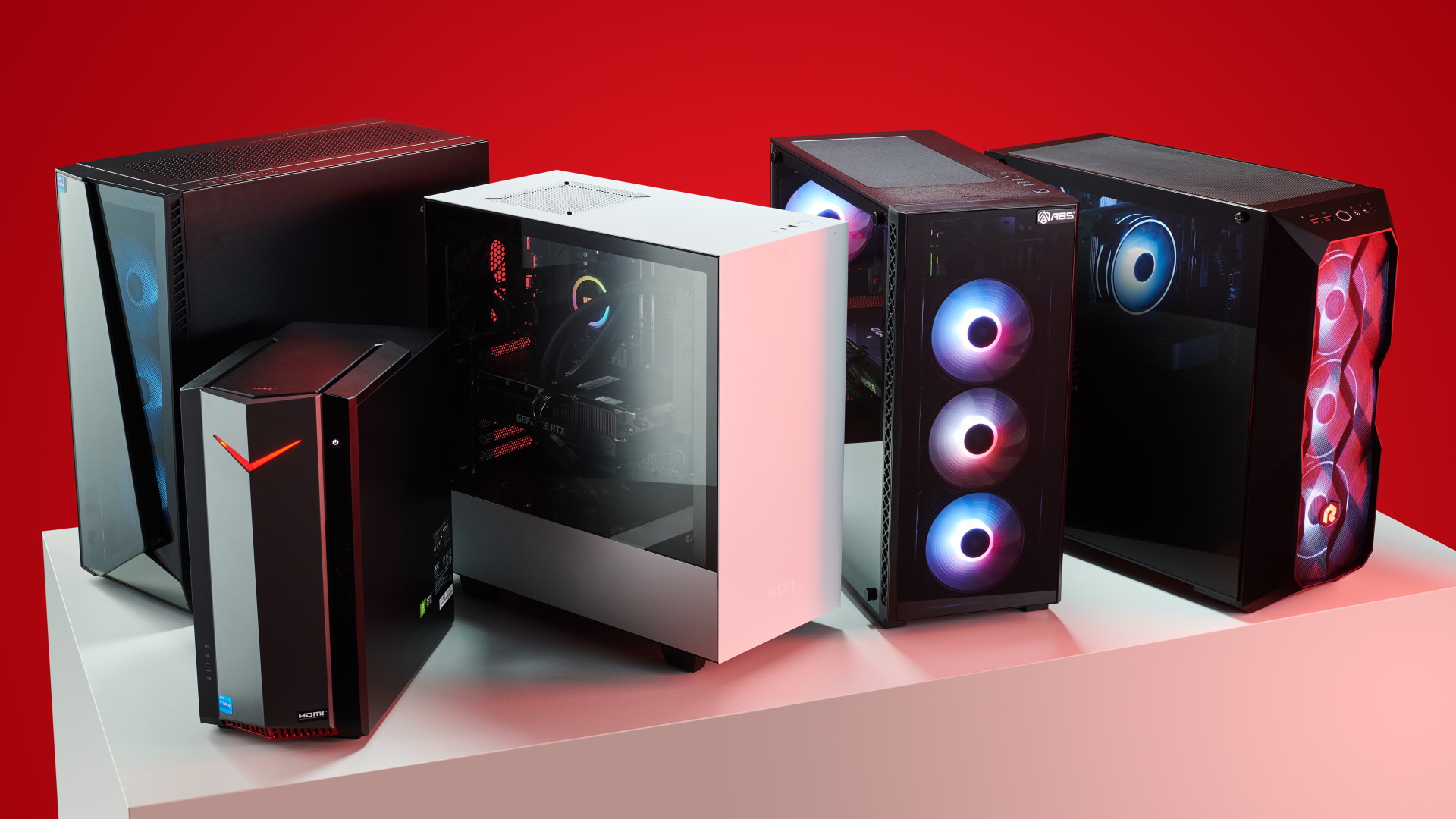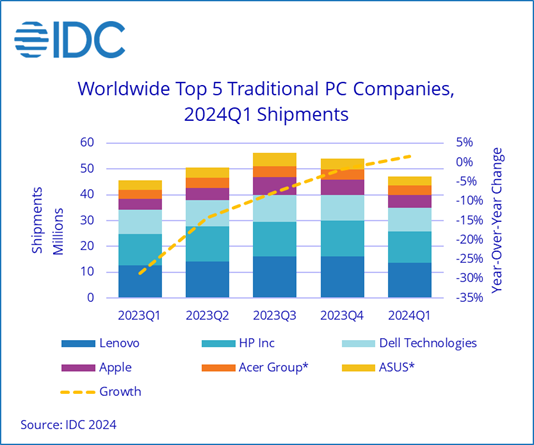After two years of misery, global PC shipments have finally started to increase but only by the smallest of margins
And the good news continues with AI PCs expected to have higher price tags. Wait, that's good news?

After a couple of years of declining PC shipments, due to the pandemic boom ending and global increases in inflation, the industry has started to see a small increase in shipments compared to this time last year. While the gains are very small, just 1.5% more, the recovery is expected to continue throughout 2024, as new product launches from every major PC vendor will be promoting the year of the AI PC.
The good news was reported by the International Data Corporation (IDC), who regularly monitors shipments for its worldwide PC device tracking service. In the first three months of 2023, an estimated 58.9 million systems were shipped across the globe, whereas for the first quarter of this year, the figure is judged to be 59.8 million—an increase of 1.53%.
That probably doesn't seem like much to celebrate about but given that shipments were previously decreasing, anything that results in it going the other way is a positive. The IDC puts the gains to a number of factors, with the most notable being the fact that in the first quarter of 2023, PC shipments were down almost 29%, the lowest recorded drop in tech history, so it wouldn't have taken much to improve on that.
However, analysts also identified that inflation was decreasing in many countries and suggests this is part of the reason behind the growth in shipments in the Americas, Europe, Middle East, and Africa. Bucking that trend is China, which is still experiencing a low demand for new PCs.
The biggest winners in the upturn of PC shipments were, in order of size of growth, Apple, Acer, and Lenovo. In contrast, Asus and Dell enjoyed fewer shipments compared to 2023, though the decreases were fairly small.

This year will see the launch of all kinds of new PC hardware and software, from all of the major tech vendors, and the industry as a whole is betting on AI PCs to kick start a much larger cycle of growth (and here's what that phrase actually means). And that's despite the IDC forecasting that these new devices will be more expensive than previous models.
"Along with growth in shipments, AI PCs are also expected to carry higher price tags, providing further opportunity for PC and component makers," said Jitesh Ubrani, research manager with IDC's Worldwide Mobile Device Trackers.
The biggest gaming news, reviews and hardware deals
Keep up to date with the most important stories and the best deals, as picked by the PC Gamer team.

Best gaming PC: The top pre-built machines.
Best gaming laptop: Great devices for mobile gaming.
While I have no doubt that the industry is thoroughly expecting the average customer to readily lap up the forthcoming technology, if few of the claims about the benefits of AI PCs turn out to be genuine, then there's a chance that the growth in PC shipments won't be sustainable.
They'll certainly start off well, as buyers get caught up in the AI hype train, but once the fervour calms down, and reality sinks in, the industry could find itself facing yet another slump in shipments and sales.
No matter what happens, it will be interesting to see how this all pans out and, naturally, you can rely on us to test all the new tech and let you know whether it's really worth your money.

Nick, gaming, and computers all first met in 1981, with the love affair starting on a Sinclair ZX81 in kit form and a book on ZX Basic. He ended up becoming a physics and IT teacher, but by the late 1990s decided it was time to cut his teeth writing for a long defunct UK tech site. He went on to do the same at Madonion, helping to write the help files for 3DMark and PCMark. After a short stint working at Beyond3D.com, Nick joined Futuremark (MadOnion rebranded) full-time, as editor-in-chief for its gaming and hardware section, YouGamers. After the site shutdown, he became an engineering and computing lecturer for many years, but missed the writing bug. Cue four years at TechSpot.com and over 100 long articles on anything and everything. He freely admits to being far too obsessed with GPUs and open world grindy RPGs, but who isn't these days?

